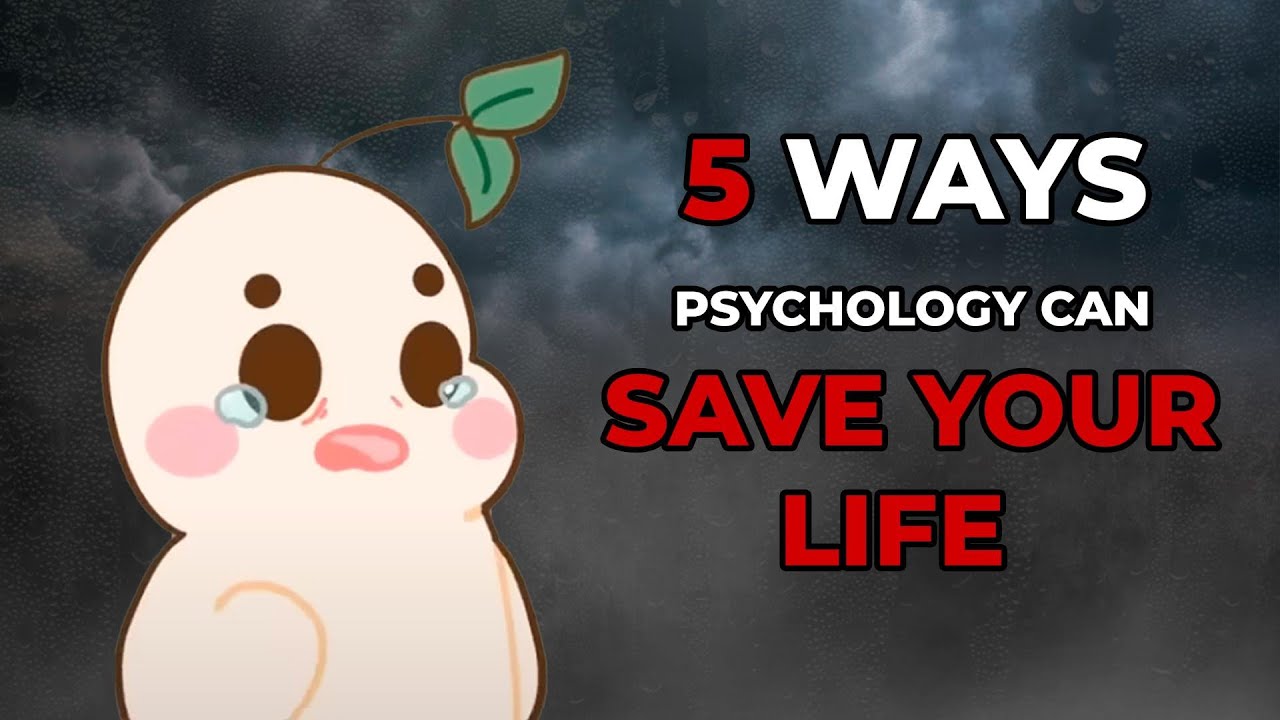5 Psychology Facts That Will Save Your Life
If you are a long time viewer to @Psych2go, then you know how much we love psychology. Psychology inspired the start of this channel since the founder himself was also a psychology major. What he loved most about psychology was the power that knowledge can actually help us in everyday situations. For example, knowing the bystander effect can teach us how to appoint help when there are too many people watching. In this video, we will share with you 5 other interesting psychology facts to help you. If you enjoy this video, be sure to share it so we can encourage more people to pick up psychology as well.
Team For this Project:
Writer: Brian Cham
Editor: Brie Villanueva
Script Manager: Kelly Soong
Voice Over: Amanda Silvera (https://www.youtube.com/amandasilvera)
Animator: Zere Suraganova (New Animator)
Youtube Manager: Cindy Cheong
Managed by: Geo Gao
Merchandise if you want to get a piece of PSI:
Grab PSI plushy here: https://psych2go.shop/products/psych2go-plushie
Discount code: “Loyalty” to get 15% off. Only first 50 people.
Official Discord: https://discord.gg/EsWEvrJ
Provide Feedback for this video: https://forms.gle/B1JAxZKn9XvJpXUQ7
Sources to double check:
Dawson, D., & Reid, K. (1997). Fatigue, alcohol and performance impairment. Nature, 388(6639), 235-235.
Eifert, G. H., & Heffner, M. (2003). The effects of acceptance versus control contexts on avoidance of panic-related symptoms. Journal of Behavior Therapy and Experimental Psychiatry, 34(3-4), 293-312.
Fischer, P., Krueger, J. I., Greitemeyer, T., Vogrincic, C., Kastenmüller, A., Frey, D., … & Kainbacher, M. (2011). The bystander-effect: a meta-analytic review on bystander intervention in dangerous and non-dangerous emergencies. Psychological bulletin, 137(4), 517.
Franks, G., & Davies, C. (2022, December 7). How to use the Military Sleep Method to fall asleep faster at night. TechRadar. www.techradar.com/news/the-military-sleep-method-to-fall-asleep-faster
Hirshkowitz, M., Whiton, K., Albert, S. M., Alessi, C., Bruni, O., DonCarlos, L., … & Hillard, P. J. A. (2015). National Sleep Foundation’s sleep time duration recommendations: methodology and results summary. Sleep health, 1(1), 40-43.
Hole, G. J. (2014). The Psychology of Driving. Psychology Press.
Joo, E. Y., Yoon, C. W., Koo, D. L., Kim, D., & Hong, S. B. (2012). Adverse effects of 24 hours of sleep deprivation on cognition and stress hormones. Journal of Clinical Neurology, 8(2), 146-150.
Liebst, L. S., Philpot, R., Bernasco, W., Dausel, K. L., Ejbye‐Ernst, P., Nicolaisen, M. H., & Lindegaard, M. R. (2019). Social relations and presence of others predict bystander intervention: Evidence from violent incidents captured on CCTV. Aggressive behavior, 45(6), 598-609.
Levitt, J. T., Brown, T. A., Orsillo, S. M., & Barlow, D. H. (2004). The effects of acceptance versus suppression of emotion on subjective and psychophysiological response to carbon dioxide challenge in patients with panic disorder. Behavior therapy, 35(4), 747-766.
O’Toole, M. E., & Bowman, A. (2012). Dangerous Instincts: Use an FBI Profiler’s Tactics to Avoid Unsafe Situations. Penguin.
Simons, D. J., & Chabris, C. F. (1999). Gorillas in our midst: Sustained inattentional blindness for dynamic events. perception, 28(9), 1059-1074.
Watson, S., & Cherney, K. (2023, February 14). The Effects of Sleep Deprivation on Your Body. Healthline. www.healthline.com/health/sleep-deprivation/effects-on-body




![Private: [ID: ItEGlORS4sM] Youtube Automatic](https://nezha.pro/wp-content/uploads/2023/10/private-id-iteglors4sm-youtube-a-236x133.jpg)
![Private: [ID: 3Z2LZ-qouhQ] Youtube Automatic](https://nezha.pro/wp-content/uploads/2023/10/private-id-3z2lz-qouhq-youtube-a-236x133.jpg)
![Private: [ID: 4IAx46p5988] Youtube Automatic](https://nezha.pro/wp-content/uploads/2023/10/private-id-4iax46p5988-youtube-a-236x133.jpg)
![Private: [ID: l_eQsQcc-l8] Youtube Automatic](https://nezha.pro/wp-content/uploads/2023/10/private-id-leqsqcc-l8-youtube-au-236x133.jpg)
![Private: [ID: d_o5yZ79pAI] Youtube Automatic](https://nezha.pro/wp-content/uploads/2023/10/private-id-do5yz79pai-youtube-au-236x133.jpg)
![Private: [ID: y0D5AtFNP1g] Youtube Automatic](https://nezha.pro/wp-content/uploads/2023/10/private-id-y0d5atfnp1g-youtube-a-236x133.jpg)
![Private: [ID: uqpOJy8BEy0] Youtube Automatic](https://nezha.pro/wp-content/uploads/2023/10/private-id-uqpojy8bey0-youtube-a-236x133.jpg)
![Private: [ID: XTJMT0Mbmsw] Youtube Automatic](https://nezha.pro/wp-content/uploads/2023/10/private-id-xtjmt0mbmsw-youtube-a-236x133.jpg)
![Private: [ID: 8jLOPRueiLs] Youtube Automatic](https://nezha.pro/wp-content/uploads/2023/10/private-id-8jloprueils-youtube-a-236x133.jpg)
![Private: [ID: 2MQU0l_t6S0] Youtube Automatic](https://nezha.pro/wp-content/uploads/2023/10/private-id-2mqu0lt6s0-youtube-au-236x133.jpg)